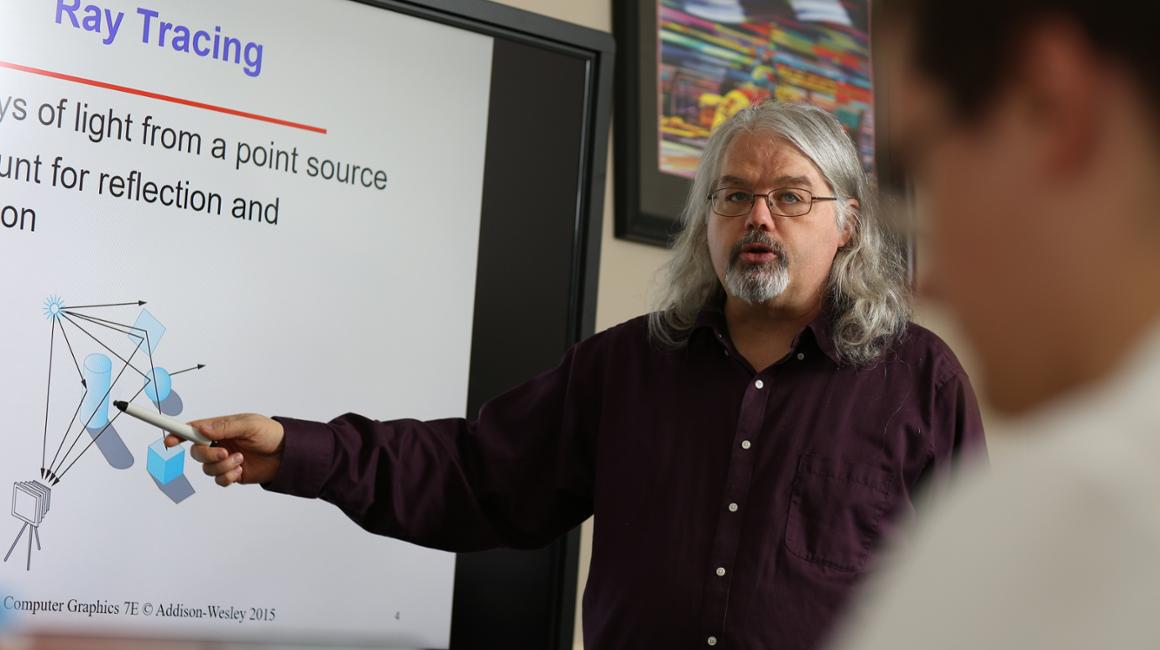Duquesne University Computer Science Professor Works to Bring Language Technology to All
Submitted by Duquesne
 A Duquesne University Master of Science in Computer Science faculty member, Patrick Juola, Ph.D., will travel to Budapest, Hungary as a Fulbright U.S. Scholar to improve something most of the English-speaking world takes for granted on a daily basis—natural language processing in digital devices.
A Duquesne University Master of Science in Computer Science faculty member, Patrick Juola, Ph.D., will travel to Budapest, Hungary as a Fulbright U.S. Scholar to improve something most of the English-speaking world takes for granted on a daily basis—natural language processing in digital devices.
Today, English speakers have fully integrated spellcheck, speech-to-text, translation, etc. features to help make communication between humans and devices more effective and efficient—often in real time. However, countless languages remain off grid when it comes to this kind of processing technology. Through Juola’s ongoing and Fulbright computational linguistics research, he is determined to eliminate these barriers to ensure that everyone has the same access.
“One of my big goals is to support natural language processing for ‘low resource’ languages,” Juola said about bringing access to various underserved cultures around the world. “For example, there are nearly 200 languages in the Philippines, but how many of those languages have the spelling and grammar checkers that English-speakers use every day? How many have speech-to-text support or predictive typing? That is what we want to solve for with this research.”
In Budapest, Juola will work alongside leading “digital humanist and literary historian” Gabór Palkó, Ph.D., head of the Digital Humanities department at Eötvös Loránd University. The research team will work to improve natural language processing in Hungarian, including improvements in authorship analysis technology.
As the Endowed Chair in Teaching and Technology and Cybersecurity Studies Program Director for the department of Math and Computer Science, Juola is excited to see where these findings take him and hopes that they lead to additional collaborations throughout Europe and the Middle East.
Joula is also looking forward to bringing new language processing knowledge back to his M.S. in Computer Science students with more hands-on experiences and horizon-expanding collaborative opportunities with his European colleagues, including supporting future Fulbright applications that may extend this research even further.
“Not only will I learn a lot about my professional specialization from working with some of the world's experts, I'm hoping to learn about different methods of teaching and structuring curricula,” Juola said. “The connections I make will allow me to help my students work or study in Europe.”
Learn more about Duquesne’s Master of Computer Science program.
Duquesne University
Founded in 1878, Duquesne is consistently ranked among the nation's top Catholic universities for its award-winning faculty and horizon-expanding education. A campus of nearly 8,000 graduate and undergraduate students, Duquesne prepares students by having them work alongside faculty to discover and reach their goals. The University's academic programs, community service and commitment to equity and opportunity in the Pittsburgh region have earned national acclaim. It's time for bigger goals. Follow Duquesne University Facebook, X (formerly Twitter), Instagram and LinkedIn.
About the Fulbright Program
A presidentially appointed 12-member board supervises the Fulbright Program worldwide and approves recipient selection. The Fulbright Program is devoted to increasing mutual understanding between people of the United States and those of other countries. It is recognized as the world’s largest and most diverse international exchange program, the award allows researchers to join the distinguished ranks of alumni who have become heads of state, Nobel Laureates, Pulitzer Prize winners and more.